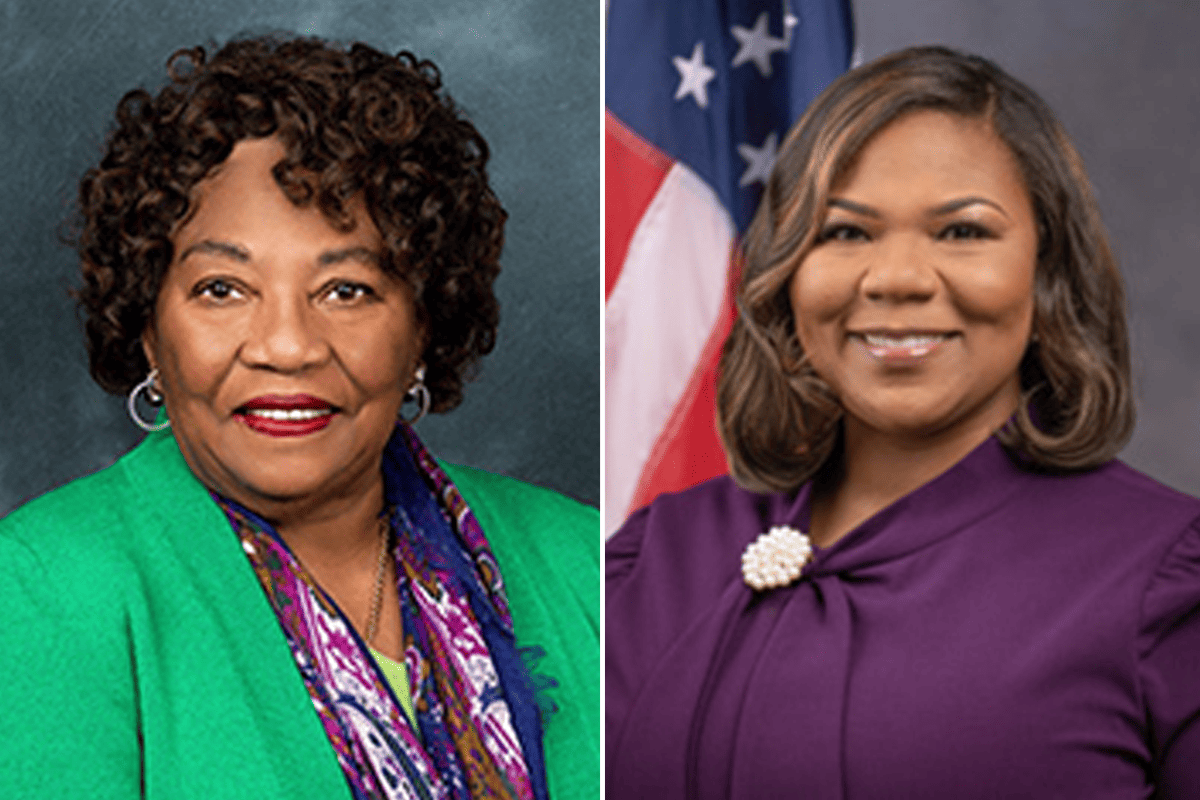Democratic lawmakers file bill to disband election crimes office, other measures

TALLAHASSEE, Fla. – Democratic lawmakers filed legislation that would disband the Office of Election Crimes and Security, along with other measures aiming to “increase access to voting.”
Sen. Geraldine Thompson, D-Orlando, filed the Senate version of the bill, SB 1522, and Rep. LaVon Bracy Davis, D-Orlando, filed a companion bill in the House, HB 1035.
According to a press release, the legislation is named in honor of Harry T. and Harriette V. Moore, titled as the “Harry T. & Harriette V. Moore Florida Voting Rights Act.”
“Given that the Voting Rights Act has been weakened at the federal level, legislators at the state level must work to put in place statutes that protect and expand access to the ballot box within our communities,” Thompson said.
According to a press release, the bill would repeal Florida Statutes related to election crimes and security and would disband the Office of Election Crimes and Security, which Gov. Ron DeSantis signed a law to establish in 2022.
The press release said since the creation of the Office of Election Crimes and Security, it has “served as a politicized weapon to intimidate Black voters from exercising their freedom to vote by arresting Floridians whom the State genuinely misinformed about their voting eligibility.”
The bill also tackles “racially polarized voting,” which is defined in the bill as “voting in which the candidate or electoral choice preferred by protected class members diverges from the candidate or electoral choice preferred by voters who are not protected class members.”
The bill would require a local government to employ a district-based or alternative method of election if elections in the local government exhibit “racially polarized voting.”
The bill defines an “alternative method of election” as a method of electing candidates to the legislative body of a local government other than an at-large method of election or a district-based method of election, and includes, but is not limited to, ranked-choice voting, cumulative voting, and limited voting.
The legislation would also require the secretary of state be elected rather than appointed and serve a specified term.
The bill would establish a “Florida Voting Rights Act Commission,” which would consist of five commissioners and a nominating committee that would select its own chair to preside over meetings and voting.
All members of that commission shall be randomly selected from the qualified candidate pool, according to the bill.
According to a press release, key provisions of the bill include:
- Preclearance Protections to ensure changes made to the voting process at the local level are thoroughly vetted.
- Automatic registration for eligible Floridians to vote when they interact with the Florida Department of Highway Safety and Motor Vehicles unless they opt-out.
- A centralized database for returning citizens to determine voter eligibility.
- Permanent Vote by Mail Requests.
- Expanded Language Access.
- Allows eligible voters to register to vote at any time, up to and including Election Day.
“I am beyond proud of the work that was put into the Florida Voting Rights Act, this is a significant stride towards enhancing our democratic process in Florida,” Davis said. “This bill is not just a set of reforms; it is a beacon of hope and progress, following in the illustrious footsteps of the Voting Rights Act of 1964 championed by our civil rights leaders.”
DeSantis proposed around $21.6 million to safeguard the integrity of future elections as a part of his recommended $114.4 billion “Focus on Florida’s Future” budget for fiscal year 2024-2025.
About $2.2 million of the governor’s proposal will be dedicated toward the Office of Election Crimes and Security.
According to the governor’s office, Florida is recognized for its commitment to fair and precise elections on a national scale.
“Since the formation of the Office of Election Crimes and Security, we have held illegal voters and our election officials accountable, cracked down on ballot harvesting, and strengthened ID requirements for mail-in ballots,” DeSantis said over the summer. “In Florida, we will not allow anyone to circumvent the will of the people or the law.”
Both the Senate and House version of the bill will need to be passed through both legislative chambers and would then require the governor’s signature.



